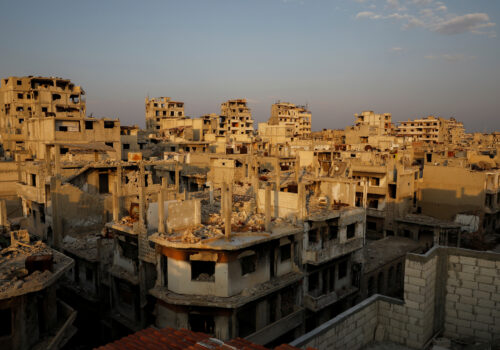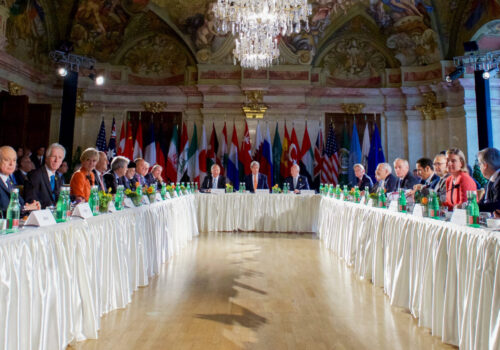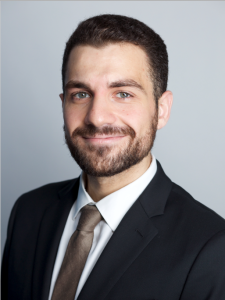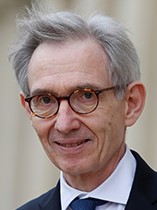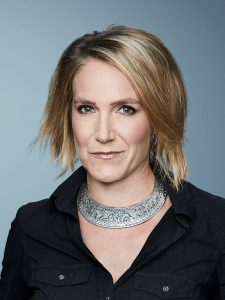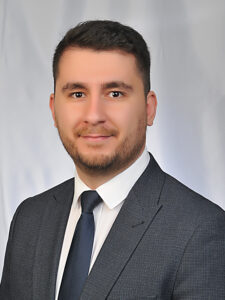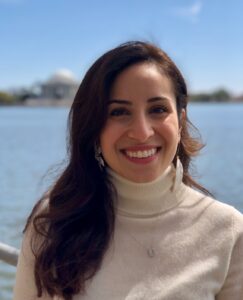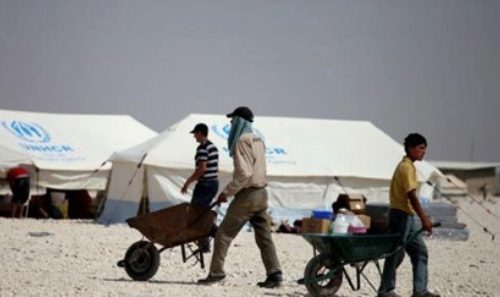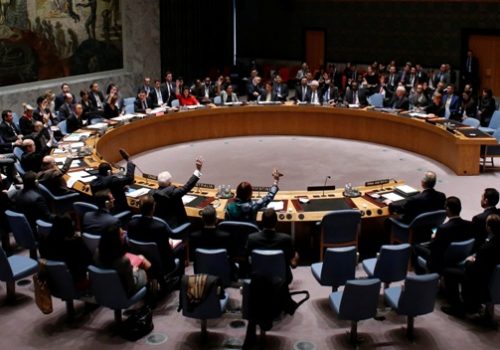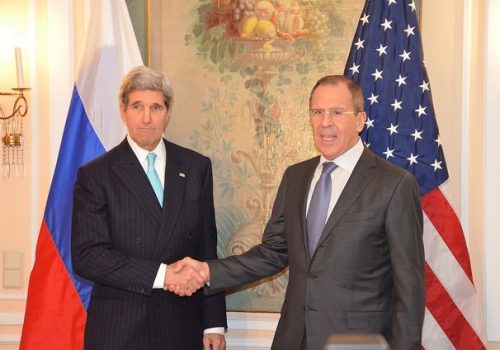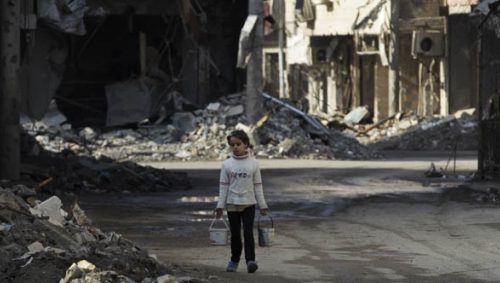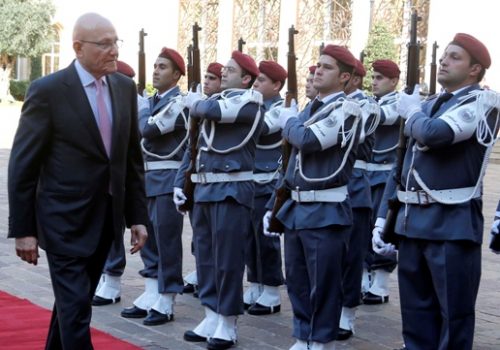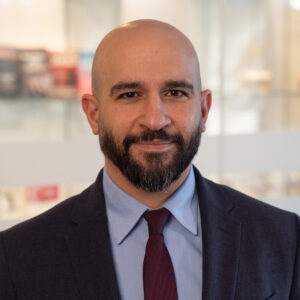Recent analysis
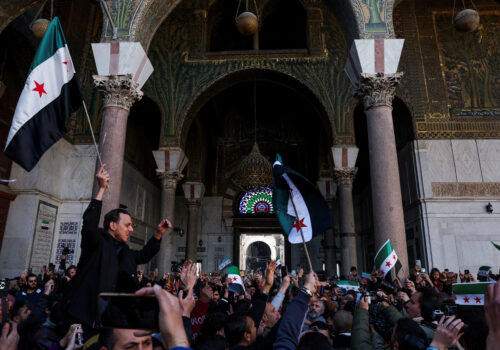
New Atlanticist
Dec 17, 2024
Dispatch from Damascus: Celebrations and concerns as a new Syria takes shape
By
Ömer Özkizilcik
Syrians in Damascus are celebrating the fall of the Assad regime, but that joy is mixed with concern for how the country’s new leaders will govern.
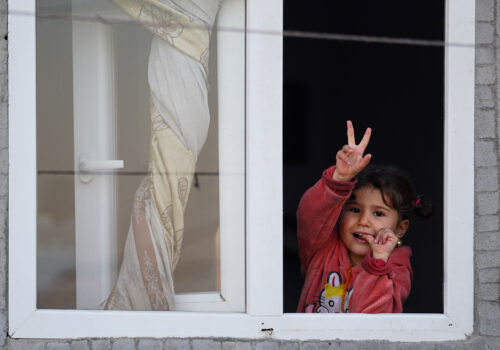
MENASource
Jun 20, 2025
On World Refugee Day, complexities persist for Syrian returnees
By
Sinan Hatahet
While Syria’s political shift brings new hope, it also highlights the complex realities that still define the Syrian landscape.
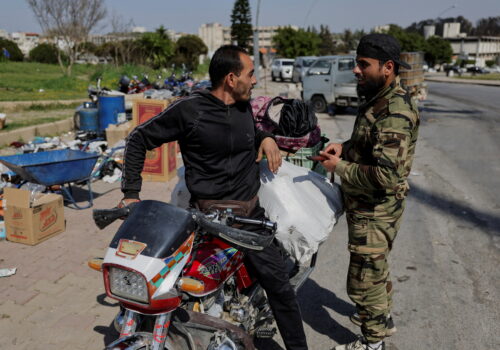
MENASource
Jun 10, 2025
Why DDR programs are the missing link to Syrian stability
By
Muhsen al-Mustafa
With the end of Western sanctions, Syria faces a rare opportunity to address the imbalances of the post-conflict period.
Explore our Syria work
Featured experts
Past events
Learn more about the Middle East programs

Middle East Programs
Working with our allies and partners in Europe and the wider Middle East to protect US interests, build peace and security, and unlock the human potential of the region.
